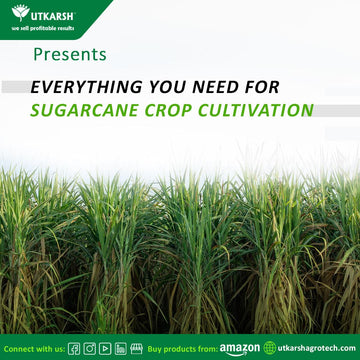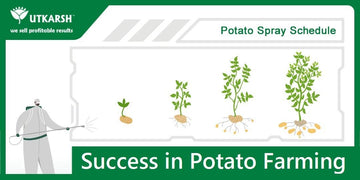
Apple Farming: An Introduction
Apple fruit is the most seasoned and monetarily the main temperate fruit is grown commercially. Apple also stands fourth amongst the most wildly produced organic fruits around the world after oranges, bananas, and grapes.
China is the biggest apple cultivator on the planet.
In India, it is mostly grown in Kashmir, the slopes of Uttar Pradesh, and Himachal Pradesh. Apple farming likewise reached out to Nagaland, Sikkim, Arunachal Pradesh, and Meghalaya.
Apples are mostly consumed fresh fruit but a little batch of the production also goes into makings of jams, juices, canned slices, confections.
Commercial Varieties
| Scab-resistant | Florina, Macfree, Nova Easy Grow, Prima, Priscilla, Sir Prize, Jonafree, Coop 12, Coop 13 (Redfree), Firdous, Nova Mac, Liberty, Freedom, Shireen. |
| Clonal rootstocks | M7,M 9, M 26, MM 11, MM 106 |
| Pollinizing | Winter Banana, Granny Smith, Tydeman’s Early, Red Gold, Golden Delicious, Mc Intosh, Starkspur Golden, Lord Lambourne, Golden Spur. |
| Low Chilling | Anna, Tropical Beauty, Michal, Tamma, Vered, Neomi, Schlomit, Parlin’s Beauty. |
| Hybrids | Lal Ambri (Red Delicious x Ambri), Ambred (Red Delicious x Ambri), Sunehari (Ambri x Golden Delicious), Chaubattia Princess, Chaubattia Anupam (Early Shanburry x Red Delicious), Ambrich (Richared x Ambri), Ambroyal (Starking Delicious x Ambri). |
Climate Requirements for Apple Farming
Apple farming can be practiced at an elevation of around 1,500 m to 2,700 m. above sea level, in the Himalayan region which experiences around 1,000 to 1,500 hours of chilling or cooling (the number of hours during which temperatures stay at or under 70 C in winter season).
The temperature during the apple growing season ought to be around 21 C to 24 C. For best development and fruiting, apple trees need around 100 cm to 125 cm of yearly precipitation, spread consistently.
An extra amount of precipitation and mist close to the fruit maturity period would also result in poor fruit quality with inappropriate coloration and advancement of fungal growth on the fruit surface.
Apple farming practices are not feasible where the high velocity of winds is expected.
Soil Requirements for Apple Farming
Apple farming practices are suitable in loamy soils rich with organic natural matter; and pH values ranging from 5.5 – 6.5. The soil is used for apple cultivation must not have to waterlog, ensuring a good drainage system results in efficient apple cultivation practices.
Soil should not have waterlogging and soil with good drainage is ideal for apple farming. Deep loam soil is best for apples. Clay-loam soils having good drainage can also be used.
In sandy-loam soils, apple trees are adversely affected by the stem diseases like Canker and Papery Bark and insects like stem and root borers. The shallow soils with gravels can be made suitable by adding heavy quantities of farmyard manure/ compost or leaf molds.
The soils rich in organic matter, have a pH of around 6.5, and have good drainage is best for apple farming.
Planting Methods of Apple farming
Pits measuring 60 cm are dug two weeks before planting. The pits are filled with good loamy soil and organic matter. Planting is done in the center of the pit by scooping the soil and placing the soil ball keeping the roots intact.
Loose soil is filled up in the remaining area and lightly pressed to remove air gaps. The seedlings are staked and watered immediately. The average number of plants in an area of one acre may range from 80 to 500.
4 different categories of planting density are implemented viz. low (less than 120 apple plants per acre), moderate (120 to 200 apple plants per acre), high (200 to 520 plants per acre) and ultra-high density (more than 520 plants per acre.
The combination of scion and rootstock variety determines the apple plant spacing and planting density unit area.
Apple farming of pollinator species in between the main species is required for proper apple fruit setting. For the establishment of Royal Delicious variety, plantation of Golden Delicious and Red Delicious as pollinators is recommended by the Horticulture Department.
Hexagonal (or) Square arrangement of the estate is practiced in the valleys through the contour technique is usually followed on the slopes. Apple ranch of pollinator species in the middle of the parent species is done for quality apple set for apple farming.
Burrow pits of size 1 m x 1 m x 1 meter are made ready for plantation in between October to November month. In each pit, about 30 kg to 40 kg of Farm Yard Manure (FYM), 500 grams of Single superphosphate, and 50 grams of Malathion dust are added subsequent to blending properly.
In each pit, 30 kg to 40 kg of Farm Yard Manure (FYM), 500 grams of Single superphosphate and 50 grams of Malathion dust are added after mixing properly. follow one irrigation immediately after apple farming.
Fertilisation and Applications of Manures
Farm Yard Manure (FMY) at 10 kg each year age of the tree is applied alongside different composts. The proportion of K, P, and N which is applied in a plantation of ideal richness is 70:35:70 grams each year (time of the tree).
Following 10 years of tree age, the portion ought to be settled at 700:350:700 grams of K, P, and N
each year.
The standard compost portion of K, P, and N in an “off” year (when the harvest load is low) is 400
Grams, 250 grams and 500 grams respectively.

To avoid the deficiency of boron, zinc, manganese, and calcium fitting use of compost is recommended.
Weed Management
Weed competition can drastically reduce tree growth during the first few years and can cause a failure of the orchard to fill its allotted space which always results in diminished yield and profitability. Good weed control during the first 3-4 months of a growing season is the most critical period of the season. In later summer months if weed control is poorer it is not detrimental to the trees.
Applying glyphosate @ 320 ml/acre or Gammaxone/Paraquat (0.5%) as the post-emergence herbicide will destroy the weed growth for 4 to 5 months.
Irrigation
Apple trees are particularly sensitive to low soil moisture. Water stress during the growing season reduces the number and size of fruits and increases June drop. The success of apple largely depends on the uniform distribution of rain during the year in case of dry spells during the critical period’s supplementary irrigation should be provided.
Water stress conditions result in poor fruit set, heavy fruit drop, loW production, and poor quality.
The most critical periods of water requirement are April- August. The water necessity in Apple cultivation is around 115 cm/annum which should be scheduled for 14 to 20 watering per irrigation.

In summer, watering ought to be given at a time frame of 6 to 10 days while in winter it is given at a time interval of about a month.
No less than 8 irrigations are expected during the critical period ranging from April to August.



Training and Pruning
Timely training and pruning activity are required for proper growth and good quality of apples.
The apple plants are trained as per the growth habit and vigor of the rootstocks. The standard apple trees are trained on a modified central leader system to receive proper light.
This improves apple fruit colour and also minimizes the effect of heavy snowfall and hail.
The spindle bush system is best suitable for high-density apple planting under mid-hill conditions.
Thinning
Thinning is one of the major techniques employed to regulate fruit quality. In apples, heavy bearing not only results in small-sized poor-quality fruits but also sets in the alternate bearing cycle. Judicious thinning done at the proper stage of fruit development can regulate cropping and improve fruit size and quality.
Since manual thinning is cumbersome and expensive, chemical thinning is employed. Chemical thinners should not be applied in very hot and dry conditions as adversely affects the absorption in apple farming.
Spraying should be done thoroughly to cover the entire canopy. Sometimes chemical thinning follows calcium deficiency therefore adequate calcium nutrition should be supplemented after thinning.
It is desirable to retain one fruit for every 40 leaves. This spaces the fruit at about 15-20 cm apart and there will be only one fruit per spur.


Intercropping
Green manuring crops like beans and sunflower can be cultivated in the early years of apple farming in order to increase soil texture and nutrients of the soil.
We concluded that apple-soybean and apple-peanut intercropping systems can be practical and beneficial in the region.
Use of Growth Regulators
To Control fruit drop:
The fruit drops may occur as;
(1) early drop due to unpollinated or unfertilized blossoms,
(2) June drop due to either moisture stress or overload of fruits, and
(3) pre-harvest drop.
The problem of fruit drops is more common in early maturing cultivars. Spraying of Naphthalene Acetic Acid (NAA) @ 10 mg/litre (Planofix is the commercial formulation of NAA of which 1 ml is dissolved in 4.5 litre water to achieve the required concentration) is most effective. The spray is done about a week before the expected drop.
To improve the fruit set: There is a problem with the normal fruit setting in climatically marginal areas. Formulations like Miraculan (0.75 mi/litre) or Paras or other similar compounds (0.6 ml/litre) or other similar compounds or Biozyme/ Protozyme (2 ml/litre) can be sprayed twice at (a) pink bud stage, and (b) immediately after petal fall.
To improve surface color and enhancement of maturity: Apple surface color development is greatly hampered in areas where temperatures during summers are high. Similarly, at high altitudes, maturity is comparatively late. Application of ethrel @ 2.5 ml/1 if sprayed about 10-12 days prior to harvesting date greatly improves color and also enhances maturity. The application of ethrel is recommended at the stage when maximum fruit size has been attained and about 30 % red coloration has developed. Planofix (1ml in 4.5 liters) should be added to ethrel to arrest the excessive fruit drop caused by ethrel. Further, ethrel treated fruits are not suitable for storage as they have a poor shelf life for apple farming.
In old orchards of standard planting system use of paclobutrazol is also helpful in improving fruiting and reducing alternate bearing.
Harvesting for apple farming
An apple tree begins bearing fruit from the eighth year. Furthermore, from the eighth to seventeenth year, apple productivity goes on growing and expanding, and thereafter the production stays steady for as long as 30 years in the case of apple farming.
The amount of apple productivity varies from one elevation to another. An Apple tree’s life can be reached out up to even 40 years contingent on the climatic condition.
The Apple fruits are normally reaped before they are completely ripe.
Watch Webinar Recording of Apple Farming:
Utkarsh Agro
Visit Utkarsh Agro for a one-stop solution for all your cultivation and farming needs, help, and services.
You can easily get our products on amazon and on our website.
All the products mentioned in this blog can be found on Amazon as well as the website of Utkarsh. Also, the method of application and the required dose can be easily found on our Website – Utkarshagro.com/shop.
उत्कर्ष के संग आपकी हर फसल होगी सफल।
Available on UtkarshAgro.com | Amazon | Flipkart | AgriBegri | Bighaat | Moglix | Agrosiaa | Toolsvila | Agri junction | Krishisuvidha | Ecotika | Shopee | Bazzu.in
Visit Website: https://utkarshagro.com/
𝐂𝐎𝐃 𝐚𝐧𝐝 𝐄𝐌𝐈 𝐨𝐩𝐭𝐢𝐨𝐧𝐬 𝐚𝐫𝐞 𝐧𝐨𝐰 𝐚𝐯𝐚𝐢𝐥𝐚𝐛𝐥𝐞.
May you have the best yield ever! Feel free to contact Utkarsh for any doubts and advice.
If you have any further queries, feel free to reach out to us on 919824133044, +919924864422, +919824300544
Landline: 02621-255972
Visit our website: https://utkarshagro.com/
Email ID: rd@utkarshagro.com
Stay connected with us to learn more tips and tricks. All you have to do is follow us here:
Chat: wa.me/918866543678
Facebook: https://www.facebook.com/utkarshagrochem/
Instagram: https://www.instagram.com/utkarshagrochem/
Twitter: https://twitter.com/UAgrochem
LinkedIn: https://www.linkedin.com/company/utkarsh-agrochem-pvt-ltd/
Pinterest: https://in.pinterest.com/utkarshagrochemsocial/
Written by : Pratik Sinha
Affiliate Writer with Monkey Ads




